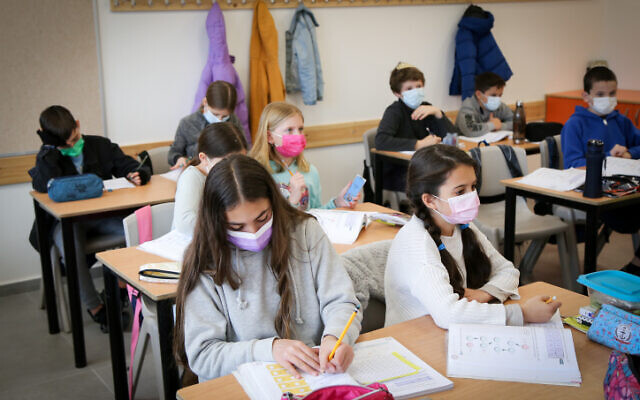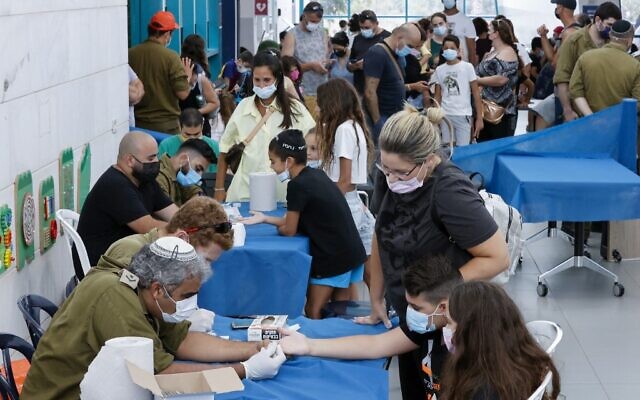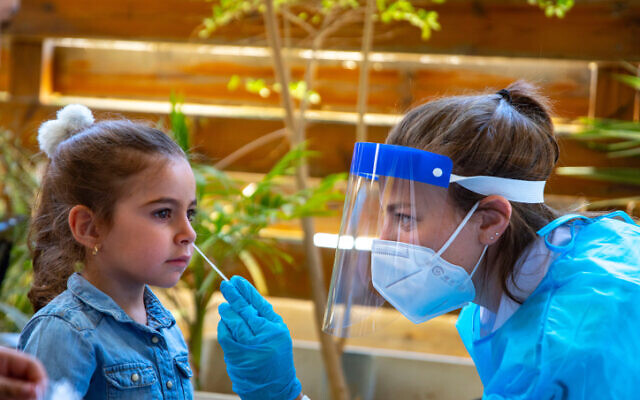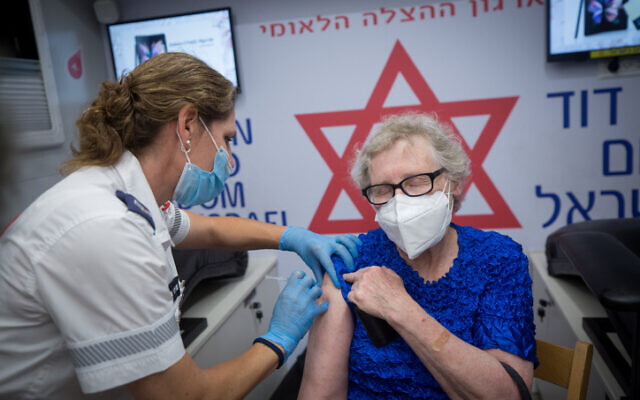Teachers and staff will be required to have a ‘Green Pass’ to enter schools; students 12 and over will get COVID shots during school hours, with parental approval

The top-level coronavirus decided after midnight Sunday that the school year will begin as scheduled on September 1, despite calls to delay it due to the recent virus surge.
As part of the decision, it was agreed that eligible students, 12 and over, will be vaccinated on campus during school hours, subject to parental approval. Education Minister Yifat Shasha-Biton has originally opposed the plan, but later agreed in a bid to avoid a delay to opening the school year.
Some officials had been pushing to delay the start of the school year by a month as the Delta variant has sparked a resurgence in serious virus cases. Over the past week, 198 people in Israel with COVID have died, with more than 40 deaths reported over the weekend alone, according to Health Ministry statistics published Sunday evening.
The cabinet also decided to implement the “Green Pass” policy for all school faculty and staff, meaning that they will either have to be vaccinated or provide a recent negative COVID test to enter the schools.
The debate over the reopening of the school year had seen a heated debate between Shasha-Biton and health ministry officials last month, marked by a series of anonymous attacks in the media on the Education Minister, branding her a “coronavirus denier,” while a top health official was slammed as “acting like she’s crazy.”
Sunday also marked the first day of nationwide serological tests for those ages 3-12, which are being operated by the IDF Home Front Command at more than 400 locations across the country.

Under the government’s back-to-school plan, more than a million students will undergo serological testing to determine if they had been infected and recovered from COVID in the past without detection. If the students are found to have antibodies, they will be granted a “Green Pass” and will be exempt from quarantine if someone in their class tests positive.
However, the first day was marred by long lines and delays at stations, with an IDF-run online registration system for the tests crashing, forcing soldiers to write down details of children being tested.
The IDF Spokesman’s Office said that its manpower will “be reinforced and diverted as necessary” to meet demand, and that the IDF is in “constant communication with authorities.”
Defense Minister Benny Gantz has authorized calling up 6,000 reservists to man the testing stations, which will remain open until at least September 2.
Beginning last week, all children ages 3-12 must show a negative COVID test in order to enter most public attractions, leading to the setting up of dozens of rapid testing sites nationwide. Many parents have complained of long lines, overcrowding and extended waits before they receiving test results at the sites.

Earlier on Sunday, the heads of seven hospitals in Israel threatened to stop accepting new COVID-19 patients starting Monday, pleading for government funds, with staff and resources stretched to the limit, they said.
According to the latest Health Ministry figures, 1,125 people infected with coronavirus had been hospitalized as of Sunday evening, including 669 in serious condition and 111 on ventilators.
The ministry on Sunday reported 5,383 cases confirmed Saturday, with an additional 3,829 since midnight, bringing the number of active cases in the country to 64,975.
It said 5.4 percent of the 102,110 tests on Saturday before came back positive.
There have been 990,524 verified infections and 6,830 COVID fatalities in the country since the pandemic began.
Officials say the vast majority of those continuing to suffer serious bouts with COVID are unvaccinated, though breakthrough cases among the vaccinated have also become common as immunity has seemingly waned, an issue Israel is seeking to remedy with a booster shot campaign.
More than 1.4 million Israelis have already received a third shot, according to ministry data. The campaign began August 1, with those over 60, and has since expanded to all Israelis over age 40, as well as healthcare workers, teachers, and pregnant women.

Israeli officials are hoping that the booster doses can halt the rise in both new cases and serious cases of COVID, in order to avoid instating drastic measures, including a national lockdown — which would be Israel’s fourth.
As reported by The Times of Israel
